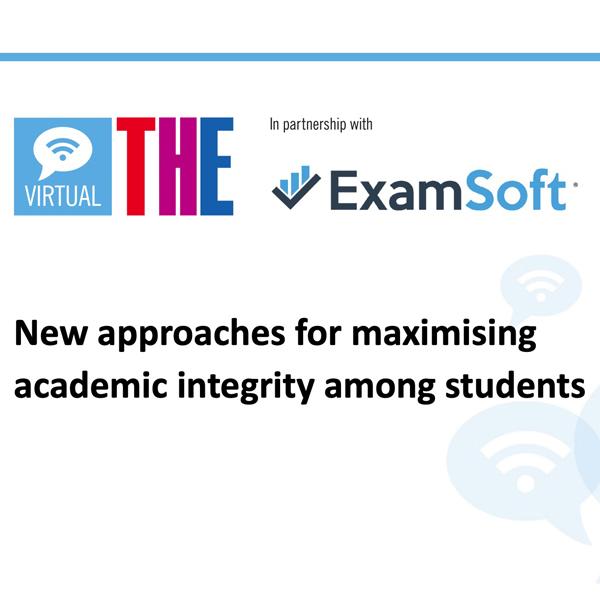
How to organise an event to train ambassadors of academic integrity

You may also like
My experience in developing my Turnitin Global Innovation Award-winning “anonymous multi-mediated writing model” to prevent plagiarism provided me with fantastic opportunities to meet like-minded scholars. The model was listed as good practice by the Australian government’s Tertiary Education Quality and Standards Agency and helped me get involved in the establishment of the European Network for Academic Integrity (ENAI) as a founder board member. Later, I established the Centre for Academic Integrity at Çanakkale Onsekiz Mart University in Türkiye, where I work.
Too often, developing academic integrity skills is taken for granted in academia despite ECRs receiving very limited exposure and opportunities to develop understanding in this area. With this in mind, I initiated an academic integrity policies course on our PhD programme in 2020 in which I invited various champions of academic integrity to participate in my online lectures. We held 14 sessions with 19 champions from 13 countries, with all of them live-streamed on YouTube.
- Zero cheating is a pipe dream, but we still need to push academic integrity
- Planning assessment to promote academic integrity online
- New approaches to academic integrity in a digital world
This helped give me the idea of initiating the ENAI Academic Integrity PhD Summer School for PhD students last year. Registration was free and open to anyone. Forty-four students from 13 countries registered and 21 lecturers from 12 countries contributed. This year, I organised the summer school as a face-to-face event at my institution in Çanakkale, again as a free event open to any PhD student. The lecturers and students involved covered their travel and accommodation expenses, and 19 students from 10 countries registered, along with seven lecturers from seven countries who indicated their interest in teaching it.
Organising a free academic integrity event without a budget requires very careful planning. For anyone interested in doing similar, here are some key steps to consider to ensure the smooth running of such events.
1. Set up an organising committee
Include both local and international members on the committee. They do not necessarily need to be noted champions of academic integrity, but they should all have good academic reputations. Consider the capabilities of each member and assign tasks accordingly to share responsibility. Set regular meetings to discuss progress and take decisions. Involve students in the organisational stages to increase their sense of belonging and develop organisational skills.
2. Select lecturers
A call for lecturers helps you see who may contribute and on which topic/s. Learn about possible external funds for them and be sure to select lecturers who will be good role models for ECRs. Where possible, take region and academic discipline into consideration when selecting your people – bringing in lecturers from various disciplines and countries makes your event truly international and interdisciplinary. But be prepared for possible cancellations from confirmed lecturers and have backups/contingencies ready.
3. Prepare the programme
As each topic in the programme can theoretically be associated with other, different areas, check whether lecturers are happy to collaborate with one another. Unless you are targeting a specific discipline, ensure that the topics in the programme address students from various disciplines. Your programme should benefit from pedagogic, preventive and proactive approaches to academic integrity.
4. Select students
Distribute a call for students by sharing details of the programme including confirmed lecturers via reputable networks in addition to email, internal comms and as many means as you can find. Collect from them letters of intention explaining their expectations from the summer school in addition to their supervisor’s contact information. Learn about their external funding options, and take region and academic discipline into consideration when selecting, if necessary. As a free event, there is a very high risk of last-minute cancellations, so a deposit payment to be returned immediately after the summer school may help mitigate that.
5. Find sponsors
Sponsors are the only means of in-cash and/or in-kind contribution. It is good to prepare a policy for sponsors to ensure a transparent approach in finding them. Specific care should be given to finding reputable sponsors – a lack of due diligence that results in accepting a third-party essay mill, for example, could ruin all your efforts.
6. Plan social events
You definitely want to maximise student-lecturer interaction. Social and side events are perfect avenues to provide such opportunities. They will add value to your event as long as they are carefully planned and implemented. Where possible, try to match your sponsors with specific social events.
7. Collaborate with international organisations
Having endorsement from international networks helps minimise some of the aforementioned risks. Moreover, they help you spread the word about your event by using their – often large – communication channels.
8. Show appreciation
Such a collaborative event usually requires the cooperation of several institutions, vendors and many individuals. Make sure you clearly acknowledge any contribution/s you receive from others.
Institutions that merely police misconduct and apply sanctions are failing in the promotion of academic integrity. Truly implementing a culture of academic integrity must go beyond detective and reactive policies. These summer schools benefited from pedagogic approaches and familiarised ECRs with the principles of academic integrity, which meant they helped promote it among PhD candidates, who went back to become ambassadors of academic integrity at their own institutions. This is crucial, because ECRs are the future of academia. If we manage to cultivate a culture of academic integrity among them, we can be more optimistic about the prevention of academic misconduct in future generations.
Salim Razı is an associate professor and the founder/director of the Centre for Academic Integrity at Çanakkale Onsekiz Mart University, Türkiye. He writes here in a personal capacity.
If you found this interesting and want advice and insight from academics and university staff delivered direct to your inbox each week, sign up for the THE Campus newsletter.


